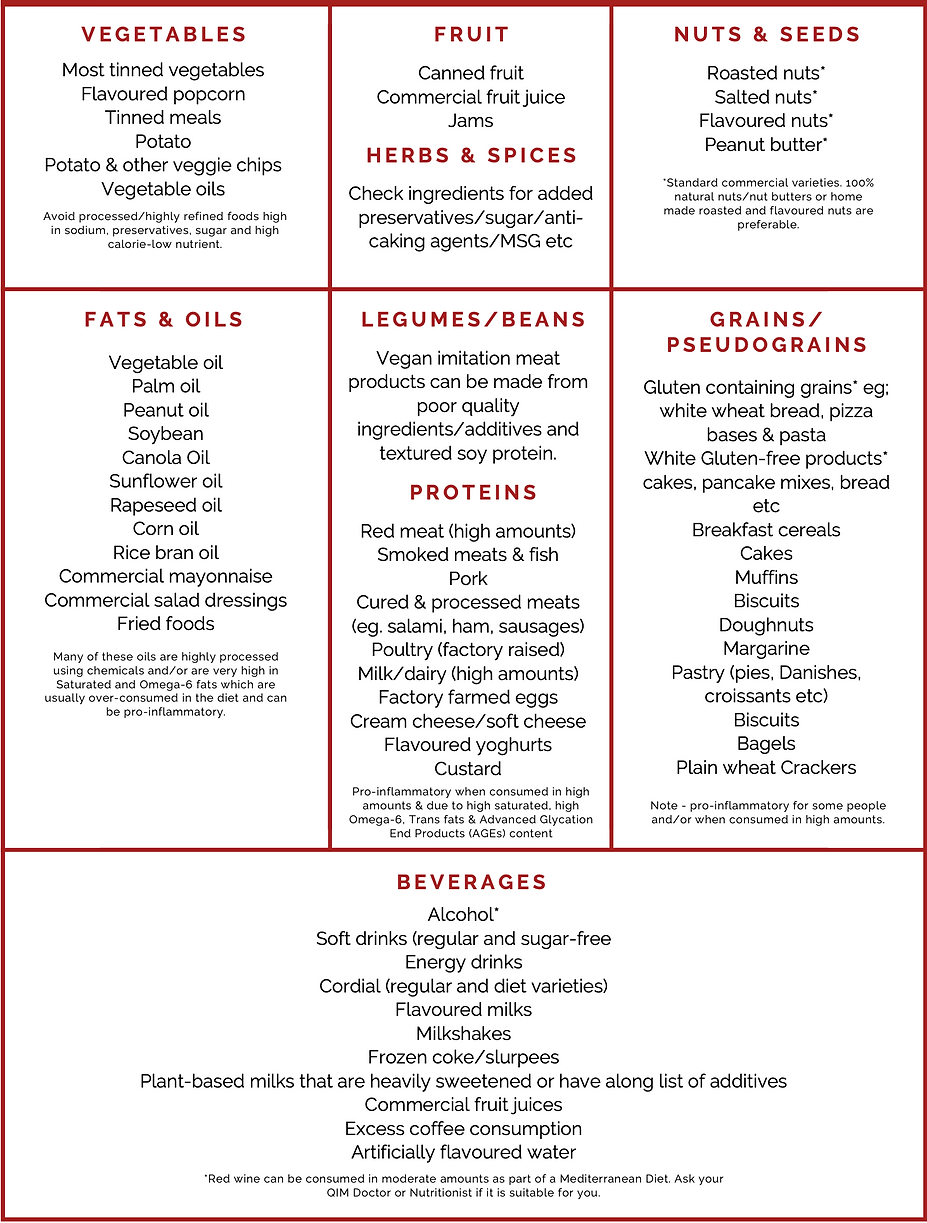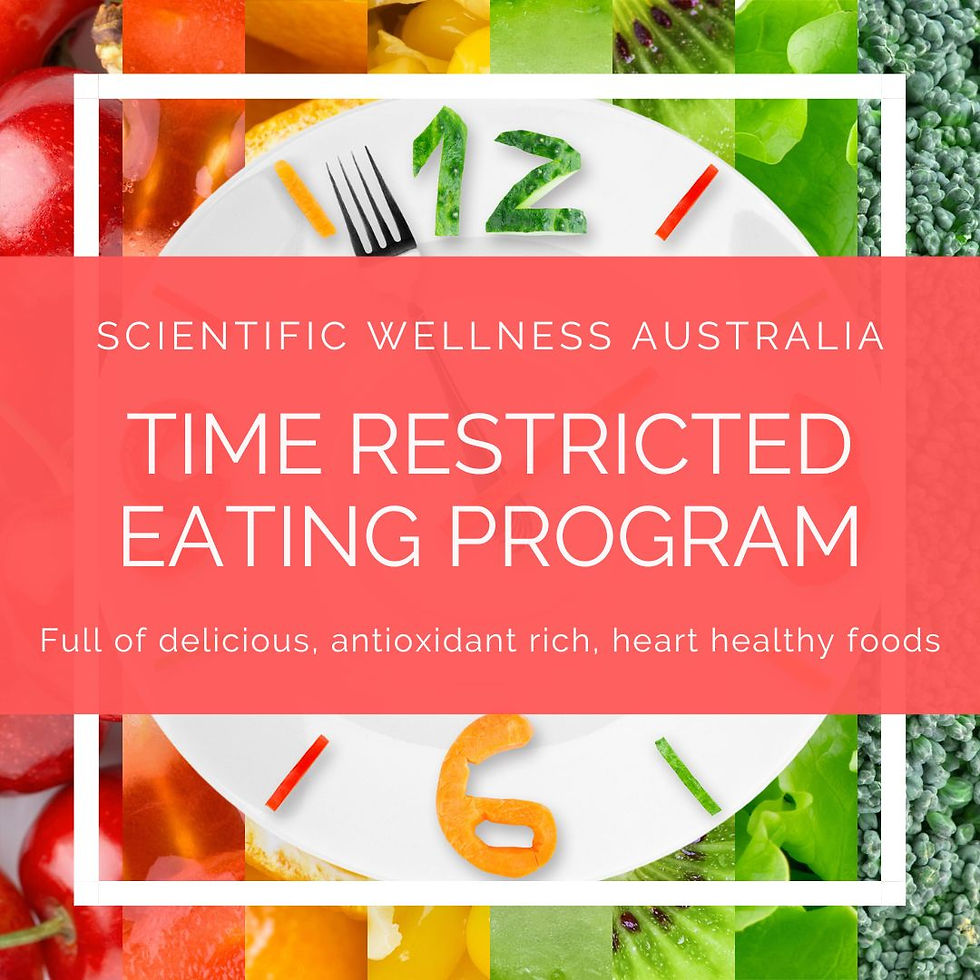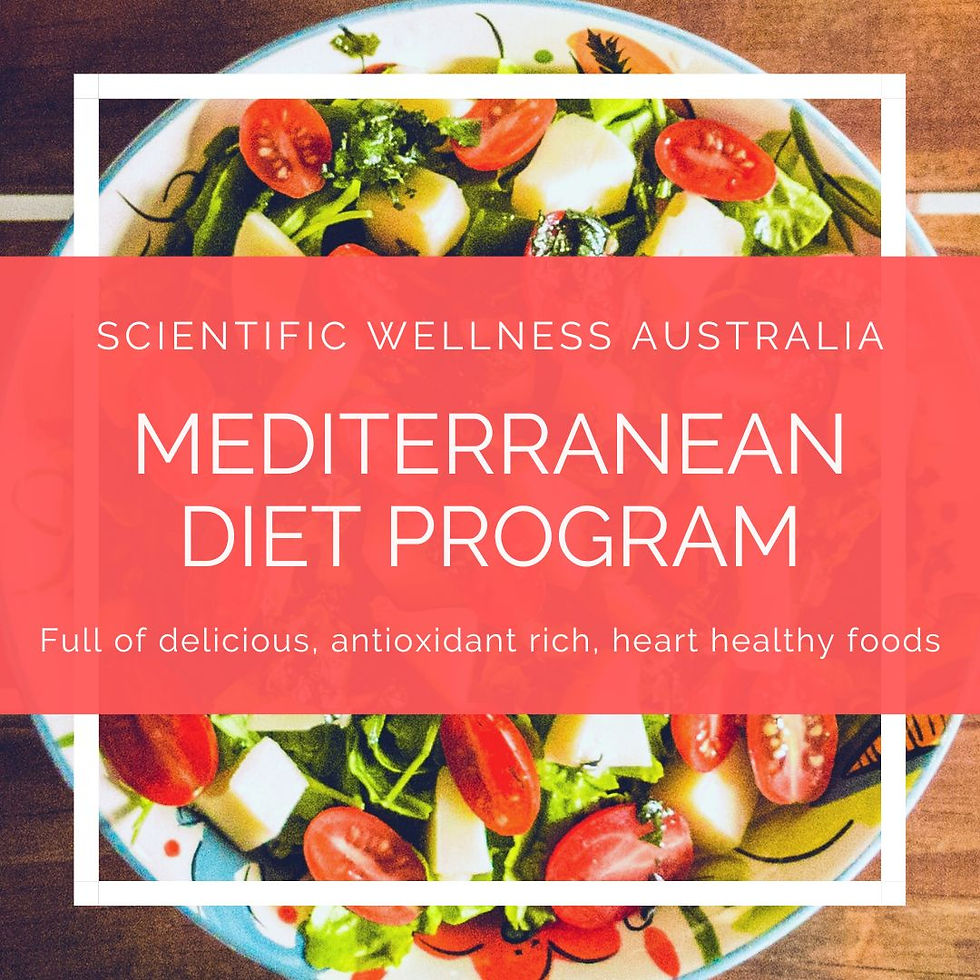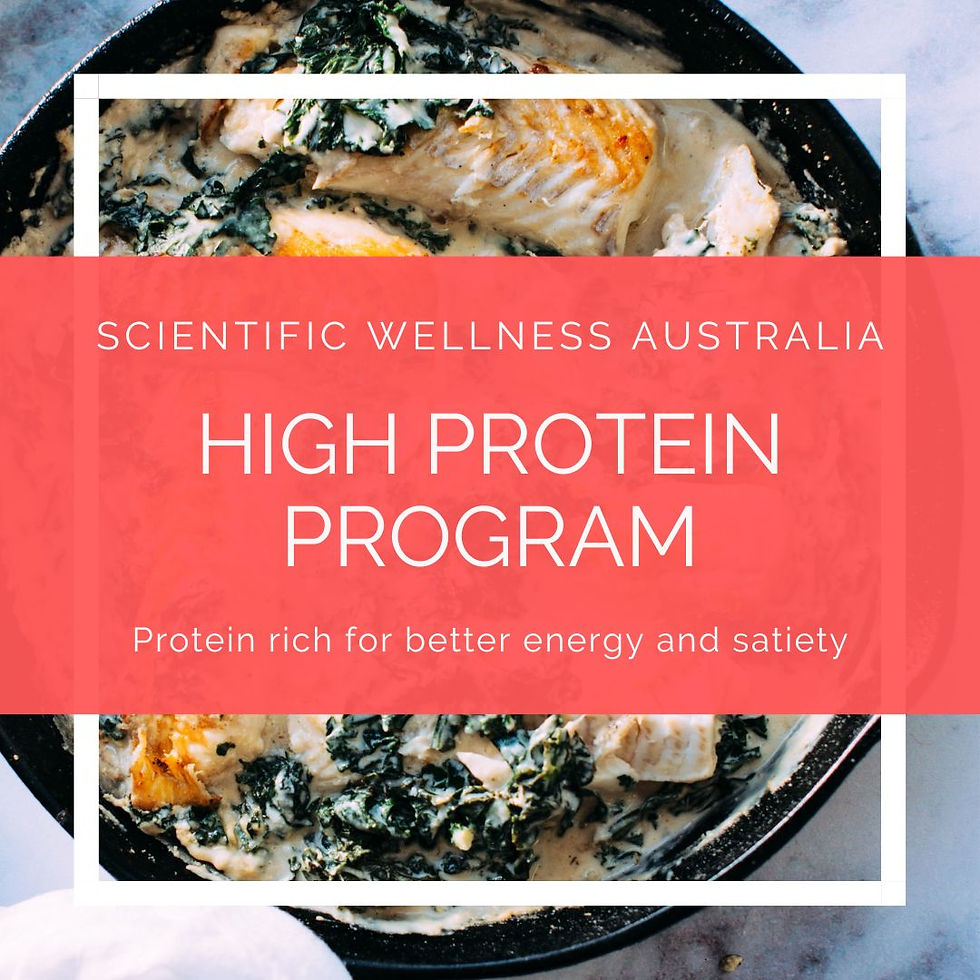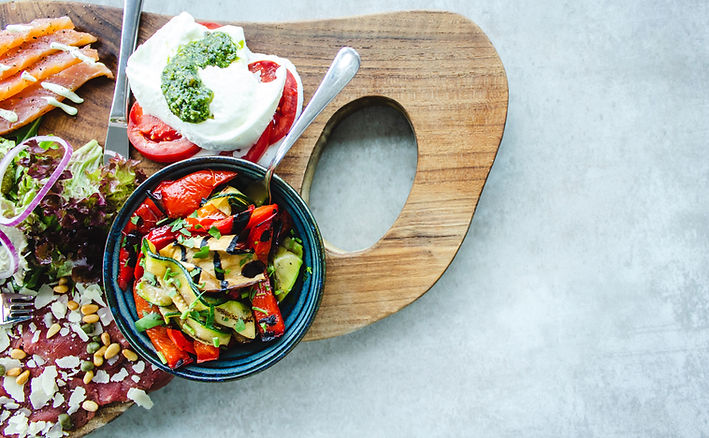
The Mediterranean Diet
What is a Mediterranean Diet?
HAILED AS THE PERFECT DIET FOR GOOD HEALTH AND LONGEVITY
Based on the traditional foods eaten throughout the temperate isles of the Mediterranean including Greece, Southern Italy and Spain, the Mediterranean diet has long been hailed as the perfect diet for promoting good health and longevity. Although it is a 'diet', the Mediterranean Diet is not about cutting calories or restricting foods. Instead it is a way of life that involves enjoying a wide variety of whole, nourishing foods with friends and family as well as maintaining an active lifestyle.
HEALTH BENEFITS
The Mediterranean Diet has always been promoted as being protective for cardiovascular disease with current research strongly supporting this. Recent systematic reviews of observational studies ranked the Mediterranean diet as the most likely dietary model to provide cardiovascular protection. Another recent large study completed in Spain that investigated the Mediterranean Diet and its relationship with cardiovascular disease found that those who were at high cardiovascular risk and who followed a recommended Mediterranean Diet had a 30% reduced risk of having a cardiovascular event relative to those who followed a recommended low fat diet.
There is also mounting preliminary evidence that the Mediterranean diet may lower overall mortality rates and the risk of cancer, neuro-degeneration and other chronic diseases such as type two diabetes, the metabolic syndrome and Alzheimer’s Disease. Researchers have also found that people who closely follow a Mediterranean diet may live a longer life and be less likely to put on weight.
Characteristics of the Mediterranean Diet
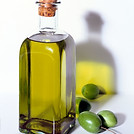
High consumption of olive oil as the main source of fat.
A wide variety of fruits and vegetables, often eaten locally and seasonally. Vegetables are eaten at every meal while fruits are often eaten as dessert or snacks.


Regular consumption of legumes, nuts and seeds are the main plant based sources of protein in the diet.
Unrefined whole grains, including all parts of the grain (the bran, endosperm and germ) as each of these components offer a wealth of health benefits that are lost or significantly reduced when they are refined into products such as white flour.

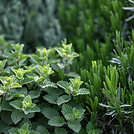
Herbs and spices are used liberally to add flavour to meals.
Moderate to high intake of fish and other seafood, usually locally caught.


Dairy foods are consumed in low-moderate amounts (mostly cheese and yoghurt).
Eggs and poultry are consumed in low to moderate amounts and are prioritised over reds meats.


Red wine, consumed in moderation with meals shared with family and friends
Red meats, very low consumption (usually only 2-4 times per month).


Regular physical activity is a prominent characteristic of the Mediterranean way of life.
Plenty of water to stay well hydrated is essential.


Processed foods and sweets are generally avoided.
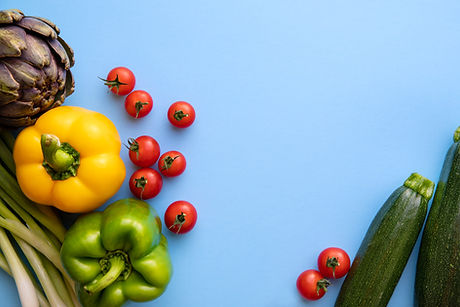
Why is this diet so healthy?

Extra Virgin Olive Oil
Regular consumption of extra virgin olive oil may be the number one health-promoting component of the diet. A good source of healthy monounsaturated fats, olive oil helps to raise good HDL cholesterol which acts as an additional protective mechanism against cardiovascular disease. Olive oil possesses antioxidant, anti-inflammatory and anti-blood-clotting properties. Click below for our article on Choosing the Highest Quality Olive Oil.
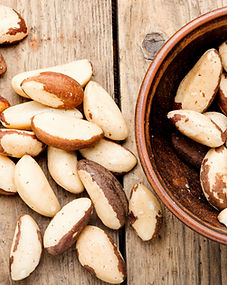
Monounsaturated Fats
Similar to olive oil, nuts, seeds and avocados are rich in heart healthy mono-unsaturated fats and are a core component of the Mediterranean diet.

Fruit & Vegetables
Fruit and vegetables are low in calories, high in fibre, nutrient dense and abundant in beneficial bioactive compounds like antioxidants that help protect the body against toxins. Research indicates that greater consumption of fruit and vegetables is closely associated with lower risk of various chronic diseases.

Legumes and Lentils
Lentils and legumes are a great source of protein, fibre, complex carbohydrates and polyunsaturated fats and are eaten regularly with the Mediterranean diet. A diet rich in fibre not only helps to lower cholesterol but is essential for bowel health and prevention of bowel cancers.

Whole Grains
Whole grains are generally unprocessed, making them rich in fibre and essential vitamins and minerals such as B vitamins, magnesium, iron and selenium. They are also rich in health promoting phytochemicals.

Fish and Other Seafood
Various types of fish are important in the Mediterranean Diet. White fish* such as cod, plaice, haddock, hake and halibut are a good source of protein which is low in fat. Shellfish such as prawns, crab, lobster and mussels contain protein and trace minerals. Oily fish contain omega-3 fatty acids and vitamins A and D. Omega-3's may reduce the risk of heart disease, some cancers and dementia (they are also thought to be helpful for brain development and in the treatment of depression).

Limited Intake of Processed Foods
The Mediterranean Diet is primarily focused on whole foods, so is low in processed foods such as refined grains, refined oils, sugars and trans fats (margarine and fried foods).
NOTES
-
Buy organic produce where possible, otherwise ensure your produce is washed thoroughly before consumption to remove agricultural residue.
-
Avoid large bottom dwelling fish like tuna, orange roughy, sword fish, kingfish and flake (shark) due to the elevated mercury levels in these fish.
Vegetables | Fruit | Herbs & Spices | Protein | Nuts & Seeds | Dairy/Alt | Beverages | Fats & Oils | Grains & Pseudograins |
|---|---|---|---|---|---|---|---|---|
Alfalfa sprouts | Apples | Basil | Adzuki beans | Almonds | A2 milk | Coconut water | Avocado | Amaranth |
Artichoke | Banana (unripe) | Cacao | Black beans | Brazil nuts | Almond milk | Coffee* | Avocado oil | Brown rice |
Asparagus | Blackberries | Cayenne | Broad beans | Cashews | Coconut milk | Filtered water | Borage oil | Buckwheat |
Avocado | Blackcurrants | Celery seed | Butter beans | Chia seeds | Coconut cream | Green tea | Eggs (yolks) | Millet |
Beetroot | Blueberries | Chamomile | Chickpeas | Coconut | Coconut yoghurt | Herbal teas | Extra virgin olive oil | Quinoa |
Bok choy | Cherries | Cinnamon | Edamame | Flaxseeds | Goats cheese | Kefir | Fish/seafood | Wild rice |
Broccoli | Cranberries | Cloves | Kidney beans | Hazelnuts | Hazelnut milk | Kombucha | Flaxseed oil | Barley |
Brussels sprouts | Grapefruit | Coriander | Lentils | Hemp seeds | Kefir | Lemon water | Macadamia oil | Bulgur |
Cabbage | Grapes | Cumin | Lima beans | Macadamias | Macadamia milk | Lime water | Quality mayonnaise | Freekeh |
Capsicum | Kiwifruit | Dill | Mung beans | Pecans | Sheep yoghurt | Mineral water | Hemp seed oil | Oats |
Carrot | Lemon | Fennel | Navy beans | Pepitas | Nut milks | Nut milks | Nuts | Rye |
Cauliflower | Lime | Garlic | Pinto beans | Pine nuts | Organic broth | 100% nut butters | Spelt | |
Celery | Nectarine | Ginger | Protein powder (high quality) | Pistachios | Red wine* | Pesto | Wholemeal sourdough | |
Cucumber | Oranges | Oregano | Split peas | Sesame seeds | Water kefir | Raw coconut oil | *Gluten-free is preferable for most, however, in moderation, some may be able to include these good quality gluten containing grains. | |
Eggplant | Plums | Paprika | Tofu (organic) | Sunflower seeds | *Please follow the advice of your QIM Doctor if coffee or wine is suitable. | Seeds | ||
Fennel | Pineapple | Rosemary | Tempeh | Walnuts | Tahini | |||
Green beans | Pomegranate | Thyme | White beans | Walnut oil | ||||
Kale | Raspberries | Turmeric | Beef | |||||
Leek | Strawberries | Chicken | ||||||
Lettuce | Lamb | |||||||
Mushrooms | Salmon | |||||||
Olives | Sardines | |||||||
Onion | Trout | |||||||
Parsnip | Turkey | |||||||
Peas | Whiting | |||||||
Pumpkin | ||||||||
Radish | ||||||||
Rocket | ||||||||
Seaweed | ||||||||
Shallots | ||||||||
Silverbeet | ||||||||
Snow peas | ||||||||
Spinach | ||||||||
Squash | ||||||||
Sweet potato | ||||||||
Tomato | ||||||||
Zucchini |

